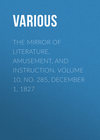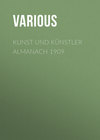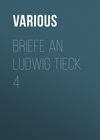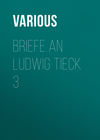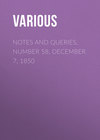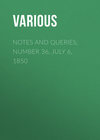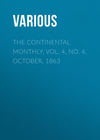Buch lesen: «The Mirror of Literature, Amusement, and Instruction. Volume 10, No. 285, December 1, 1827», Seite 4
ARABIAN HORSES
Sir John Malcolm, in his Sketches of Persia, gives the following interesting anecdotes of these noble creatures:—
Hyder, the elchee's master of the chase, was the person who imparted knowledge to me on all subjects relating to Arabian horses. He would descant by the hour on the qualities of a colt that was yet untried, but which, he concluded, must possess all the perfections of its sire and dam, with whose histories, and that of their progenitors, he was well acquainted. Hyder had shares in five or six famous brood mares; and he told me a mare was sometimes divided amongst ten or twelve Arabs, which accounted for the groups of half-naked fellows whom I saw watching, with anxiety, the progress made by their managing partner in a bargain for one of the produce. They often displayed, on these occasions, no small violence of temper; and I have more than once observed a party leading off their ragged colt in a perfect fury, at the blood of Daghee or Shumehtee, or some renowned sire or grandsire, being depreciated by an inadequate offer, from an ignorant Indian or European.
The Arabs place still more value on their mares than on their horses; but even the latter are sometimes esteemed beyond all price. When the envoy, returning from his former mission, was encamped near Bagdad, an Arab rode a bright bay horse of extraordinary shape and beauty, before his tent, till he attracted his notice. On being asked if he would sell him—"What will you give me?" said he. "It depends upon his age; I suppose he is past five?" "Guess again," was the reply. "Four." "Look at his mouth," said the Arab, with a smile. On examination he was found rising three; this, from his size and perfect symmetry, greatly enhanced his value. The envoy said, "I will give you fifty tomans3." "A little more, if you please," said the fellow, apparently entertained. "Eighty!—a hundred!" He shook his head, and smiled. The offer came at last to two hundred tomans! "Well," said the Arab, seemingly quite satisfied, "you need not tempt me any farther—it is of no use; you are a fine elchee; you have fine horses, camels, and mules, and I am told you have loads of silver and gold: now," added he, "you want my colt, but you shall not have him for all you have got." So saying, he rode off to the desert, whence he had come, and where he, no doubt, amused his brethren with an account of what had passed between him and the European envoy.
PARIS
Paris is, as it were, abandoned to foreign travellers in September and October. It is not till the first symptoms of cold are felt somewhat severely, that life in the capital is resumed in all its tumult. The Paris season is the reverse of that of London. It commences at the end of November, and closes at the beginning of May. The period of your hunting is that of our drawing-room parties. Previous to November, Paris may be compared to a vast lazaretto, where the valetudinarians of every country take refuge.—Monthly Magazine
MUSICIAN OF MANDARA

The above engraving represents one of the musicians of the Sultan of Mandara; blowing a long pipe not unlike a clarionet, ornamented with shells. These artists, with two immense trumpets from twelve to fourteen feet long, borne by men on horseback, made of pieces of hollow wood with a brass mouth-piece, usually precede the sovereign on any important visit. The costume and attitude of the musician are highly characteristic of savage mirth.
The chiefs in this part of Africa are also attended by a band carrying drums, and singing extempore songs, a translation of one of which is subjoined from "Denham's Travels," whence the engraving is copied.
Christian man he come,
Friend of us and Sheikhobe;
White man, when he hear my song,
Fine new tobe give me.
Christian man all white,
And dollars white have he;
Kanourie, like him, come,
Black man's friend to be.
From Felatah, how he run;
Barca Gana shake his spear:
White man carry two-mouthed gun;
That's what make Felatah fear.
HUNTING IN PERSIA
In Persia, persons of the highest rank lead their own greyhounds in a long silken leash, which passes through the collar, and is ready to slip the moment the huntsman chooses. The well-trained dog goes alongside the horse, and keeps clear of him when at full speed, and in all kinds of country. When a herd of antelopes is seen, a consultation is held, and the most experienced determine the point towards which they are to be driven. The field (as an English sportsman would term it) then disperse, and while some drive the herd in the desired direction, those with the dogs take their post on the same line, at the distance of about a mile from each other; one of the worst dogs is then slipped at the herd, and from the moment he singles out an antelope the whole body are in motion. The object of the horsemen who have greyhounds is to intercept its course, and to slip fresh dogs, in succession, at the fatigued animal. In rare instances the second dog kills. It is generally the third or fourth; and even these, when the deer is strong, and the ground favourable, often fail. This sport, which is very exhilarating, was the delight of the late King of Persia, Aga Mahomed Khan, whose taste is inherited by the present sovereign.—Sketches of Persia.
PIOUS WATCHMEN IN NORWAY
In Drontheim, the ancient capital of Norway, it appears, that the guardians of the night not only watch, but pray for the souls of the inhabitants. Mr. Brooke, in his recent travels, says, "as each hour elapses, they are prepared with a different kind of exhortation or prayer; which, forming a sort of tune or chant, is sung by them during the drear hours of the night." Of one of these pious songs, he gives the following literal translation:
"Ho! the Watchman, ho!
The clock has struck ten,
Praised be God, our Lord!
Now it is time to go to bed.
The housewife and her maid,
The master as well as his lad.
The wind is south-east.
Hallelujah! praised be God, our Lord!"
"The voekter, or watchman, is armed with an instrument as remarkable as his cry, being nothing less than a long pole, at the end of which is a ball, well fortified with iron spikes. This weapon is called morgen stierne, or the morning star. At Drontheim, however, bands of pick-pockets and thieves are unknown, and the morning star does little more than grace the hand of the Norwegian watchman."
As the axe of reform is just laid to the watching system of London, we may profit by the example of our Northern brethren; for it appears, they not only watch over the temporal, but spiritual concerns of their citizens, and it should seem, with salutary effect: but the vespers and matins, of a watchman in England, would meet with many unholy interruptions.
SPIRIT OF THE PUBLIC JOURNALS
LONDON CLUB-HOUSES
Club-houses are by no means a new invention; and yet the improvements upon the old plan, which was itself an improvement upon the former coffee-house, is sufficiently interesting, and sufficiently unknown to the people in general, to render some account of their advantages not superfluous. The modern club is a tavern and newsroom, where the members are both guests and landlord. The capital is derived from a sum paid by each member on entrance, and the general annual expenses, such as house-rent, servants, &c. are defrayed by an annual subscription. The society elects a committee for its execution and government, and meets at stated intervals for legislative measures. The committee appoint a steward to manage its affairs, and a secretary to keep the accounts, to take minutes of the proceedings of meetings, and transact the business of correspondence. The domestic servants are placed under the immediate direction of the steward; but above all in the choice of a cook, the discretion of the committee is most especially exerted. A house being thus established where the society is at home, the rooms are thrown open for their various accommodation. In the apartments destined for eating, members may breakfast, lunch, dine, and sup, as they list; a bill of fare of great variety is prepared; and the gourmand has nothing more to do than to study its contents, and write the names of the dishes he desires on a bill prepared for the purpose; to mention whether he orders dinner for himself alone, or in company with others; and at what time he chooses to dine, whether immediately, or at some subsequent hour. At the close of his dinner this bill or demand is presented to him with the prices annexed, and prompt payment is the law.
Wine is bottled in quarts, pints, and even half-pints, and may be had at some institutions even in glasses: it is not needless to observe, moreover, that there is no necessity either of fashion or regulation to drink it at all. At an inn, a bottle of wine must be ordered for the "good of the house," that the waiter may not despise you and be surly: that, in short, the guest may be tolerably accommodated in other matters; although, perhaps, the wine itself (wretched stuff generally at inns) is his abhorrence—though he may never drink any thing but water, and may send the decanter away untouched—the tax must be paid. Besides this entertainment for the grosser senses, the more refined appetites are considered. In some clubs, the "Travellers" for instance, a library is provided; and at most of them, even the most unintellectual, a library of reference is supplied. Here all the periodicals of the day are laid upon the tables—both those of Great Britain and of the continent, together with the newspapers, metropolitan and provincial, and in some instances the political journals of Paris. This part of the house may be considered the general resort of the gossippers and quidnuncs; and here, or in other more commodious places, materials for writing, paper, pens, lights, &c. are found. Drawing-rooms, one or more, are next to be mentioned—here the members take their tea or their ease; and where cards are played, this is the scene of operation. A billiard-room is an agreeable addition to the accommodation of the society's house, and several of the inferior apartments are always devoted to serve as dressing-rooms. It is clear, that a bachelor wants nothing beyond this but a bed; if he chooses to live in this sort of public privacy he may; and should he be only a sojourner in town, the convenience of a resort of this kind wherein he may make his appointments, receive and write his letters, see society, take his dinner, spend his evening, if not otherwise engaged, over the books, the newspapers, or a rubber of whist, and do all but sleep—a bed in the neighbourhood may supply the article of repose.—Thus all physical wants, and many social ones, are abundantly, and even luxuriously supplied.—London Magazine.
[While upon "clubs," we may as well advert to the prospectus of "The Literary Club," which has reached us since our last. It professes to be "associated for the assistance of men of letters, the development of talent, and the furtherance of the interests of literature." It not only aims at charitable provision for the weaknesses and infirmities of nature, but anticipates "harmony and friendship" among literary men, and "as little as possible on any system of exclusion." This is as it should be; but we fear the workings and conflicts of passion and interest are still too strong to admit of such harmony among the sons of genius. Authorship is becoming, if not already become, too much of a trade or craft to admit of such a pacificatory scheme: but the object of the association is one of the highest importance to literature, and we heartily wish it success.—ED. MIRROR.]
